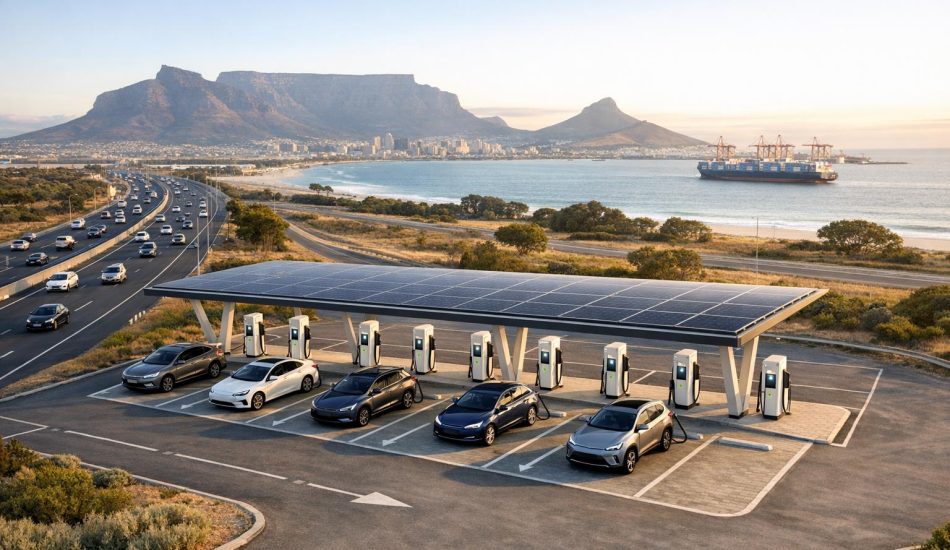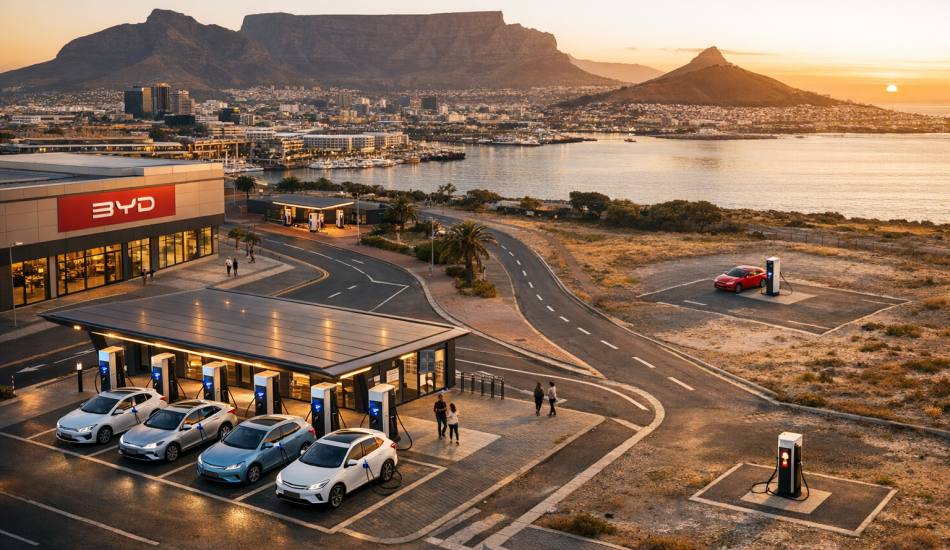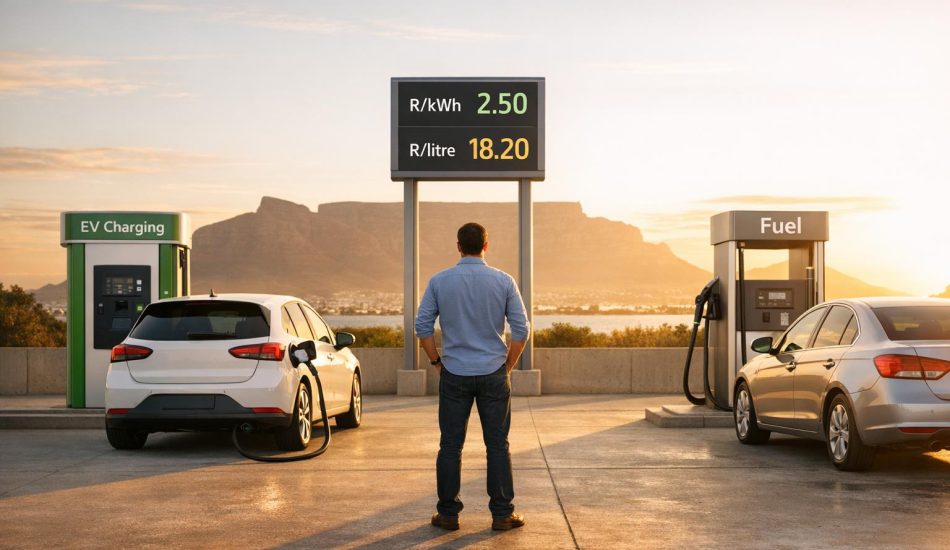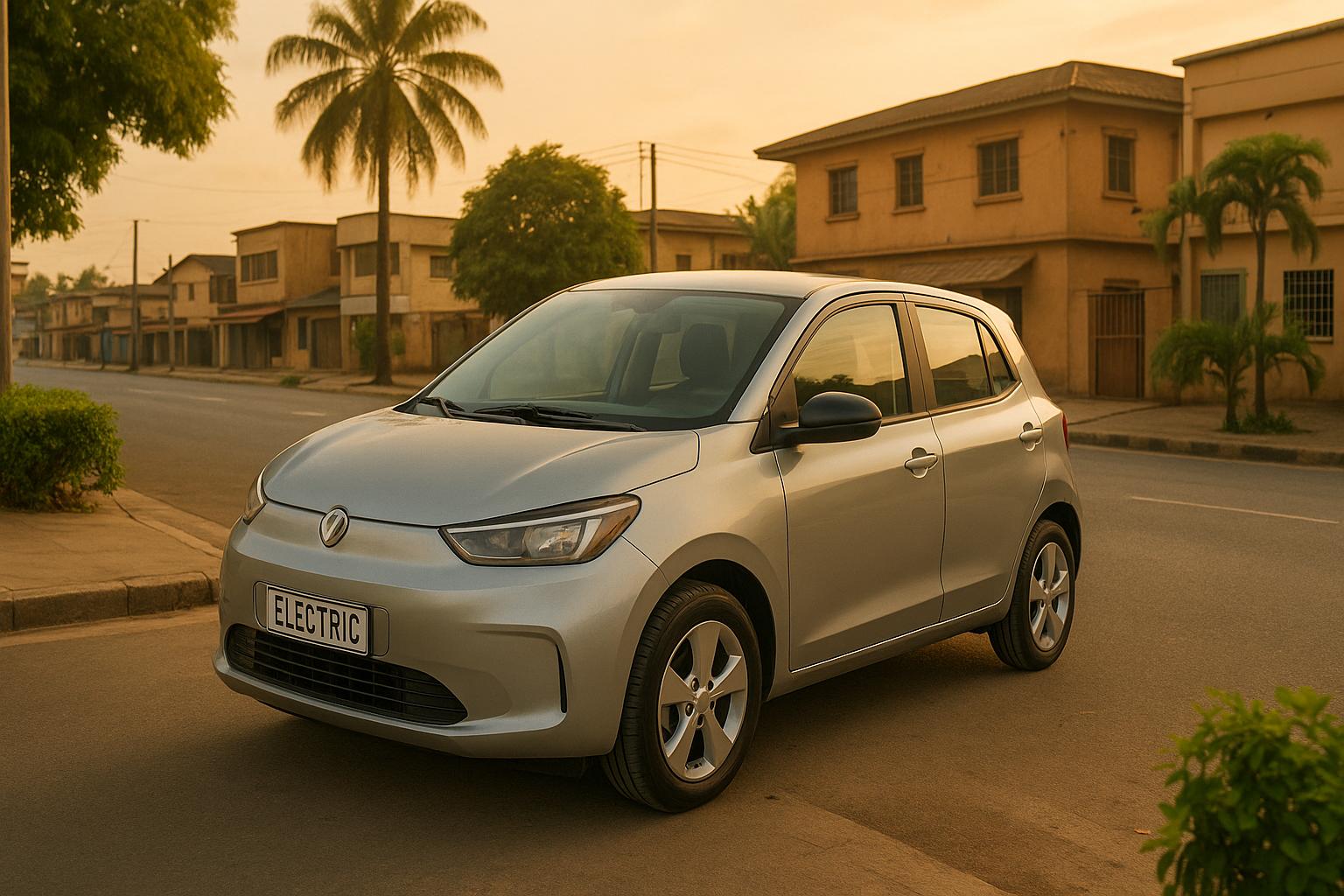
If you’re looking for the most affordable electric cars in Nigeria, here’s what you need to know:
- Aduja M2: Priced between ₦6,500,000 – ₦9,000,000 (~$8,700 – $12,000), this locally assembled EV is the cheapest option. It’s designed for urban commuting but has a limited range of 75 miles (120 km).
- Smart Fortwo Electric Drive: Costs ₦8,500,000 – ₦12,000,000 (~$11,300 – $16,000). Ideal for city driving with a compact design but offers only 93 miles (150 km) of range.
- Nissan Leaf (2015–2017 models): Priced at ₦12,000,000 – ₦18,000,000 (~$16,000 – $24,000), it balances cost and functionality with a range of 107 miles (172 km).
- Volkswagen e-Golf: Costs ₦15,000,000 – ₦22,000,000 (~$20,000 – $29,300). Offers a better range of 125 miles (201 km) and supports fast charging, making it suitable for longer trips.
While electric cars can save on fuel and maintenance costs, challenges like limited charging stations and Nigeria’s unreliable power supply make home charging essential. Import duties, registration fees, and availability of parts are also factors to consider. Platforms like EV24.africa help simplify the process by offering import, registration, and financing services.
Quick Comparison
| Model | Price Range (NGN) | Price Range (USD)* | Range (miles) | Battery Size | Best Use Case |
|---|---|---|---|---|---|
| Aduja M2 | ₦6.5M – ₦9M | $8,700 – $12,000 | 75 | 20 kWh | Urban commuting |
| Smart Fortwo Electric | ₦8.5M – ₦12M | $11,300 – $16,000 | 93 | 17.6 kWh | City driving, tight spaces |
| Nissan Leaf | ₦12M – ₦18M | $16,000 – $24,000 | 107 | 30 kWh | Family use, daily driving |
| Volkswagen e-Golf | ₦15M – ₦22M | $20,000 – $29,300 | 125 | 35.8 kWh | Highway and longer trips |
*USD conversions are approximate, based on an exchange rate of ₦750 per USD.
Electric vehicles are gaining traction in Nigeria as fuel prices rise, but choosing the right model depends on your budget, driving habits, and access to charging facilities.
NIGERIA’S TOP FIVE (5) BEST SELLING-MOST AFFORDABLE ELECTRIC CARS AND THEIR PRICES
What to Consider When Buying a Cheap Electric Car in Nigeria
If you’re thinking about buying an electric car in Nigeria, it’s important to weigh the total cost of ownership. This means looking beyond just the price tag to understand how much you’ll spend over time, including maintenance, charging, and other factors. By keeping these considerations in mind, you can find an electric vehicle (EV) that matches both your budget and daily needs. Let’s break down the key factors that influence EV affordability in Nigeria.
Purchase Price and Budget
The upfront cost of an electric car can be a significant hurdle. In Nigeria, affordable options often include used imported models or locally manufactured vehicles. However, you’ll need to factor in additional costs like import duties, registration fees, insurance, and any setup expenses. Financing options for EVs are still limited, so buyers may find it challenging to secure loans or affordable down payments. Planning your budget carefully is essential to avoid unexpected financial strain.
Charging Stations and Access
Charging infrastructure in Nigeria is still in its early stages, with most public charging stations located in major cities. For many EV owners, installing a home charging system becomes a necessity. However, with Nigeria’s unreliable power supply, you might also need a backup solution, such as a generator or solar power system, to ensure consistent charging. Limited public charging options can make long-distance travel more complicated, so planning your routes and charging stops in advance is crucial.
Maintenance Costs and Parts
One of the perks of owning an electric vehicle is that it typically requires less routine maintenance compared to gas-powered cars, thanks to fewer moving parts. But in Nigeria, sourcing specialized components for repairs and battery replacements can be a challenge. Many parts need to be imported, which can lead to delays and higher costs. While battery replacement is rare in the first few years, it’s a major expense to keep in mind for the future. Additionally, service centers with EV expertise are mostly concentrated in urban areas, which could be an issue for those living in smaller towns.
Range, Battery Life, and Local Conditions
Nigeria’s climate and road conditions can take a toll on EV performance. High temperatures and frequent stop-and-go traffic can reduce battery range and accelerate wear. If you live in an area with limited charging options, this can add to the challenge. Before purchasing, evaluate your daily driving habits and consider whether the EV’s range will meet your needs in real-world conditions, not just under ideal specifications.
Cheapest Electric Cars You Can Buy in Nigeria
If you’re looking for an affordable electric vehicle (EV) in Nigeria, there are several options to consider. Each of these models caters to different urban commuting needs, offering a mix of practicality and efficiency. Here’s a closer look at some budget-friendly EVs available in the country.
Smart Fortwo Electric Drive
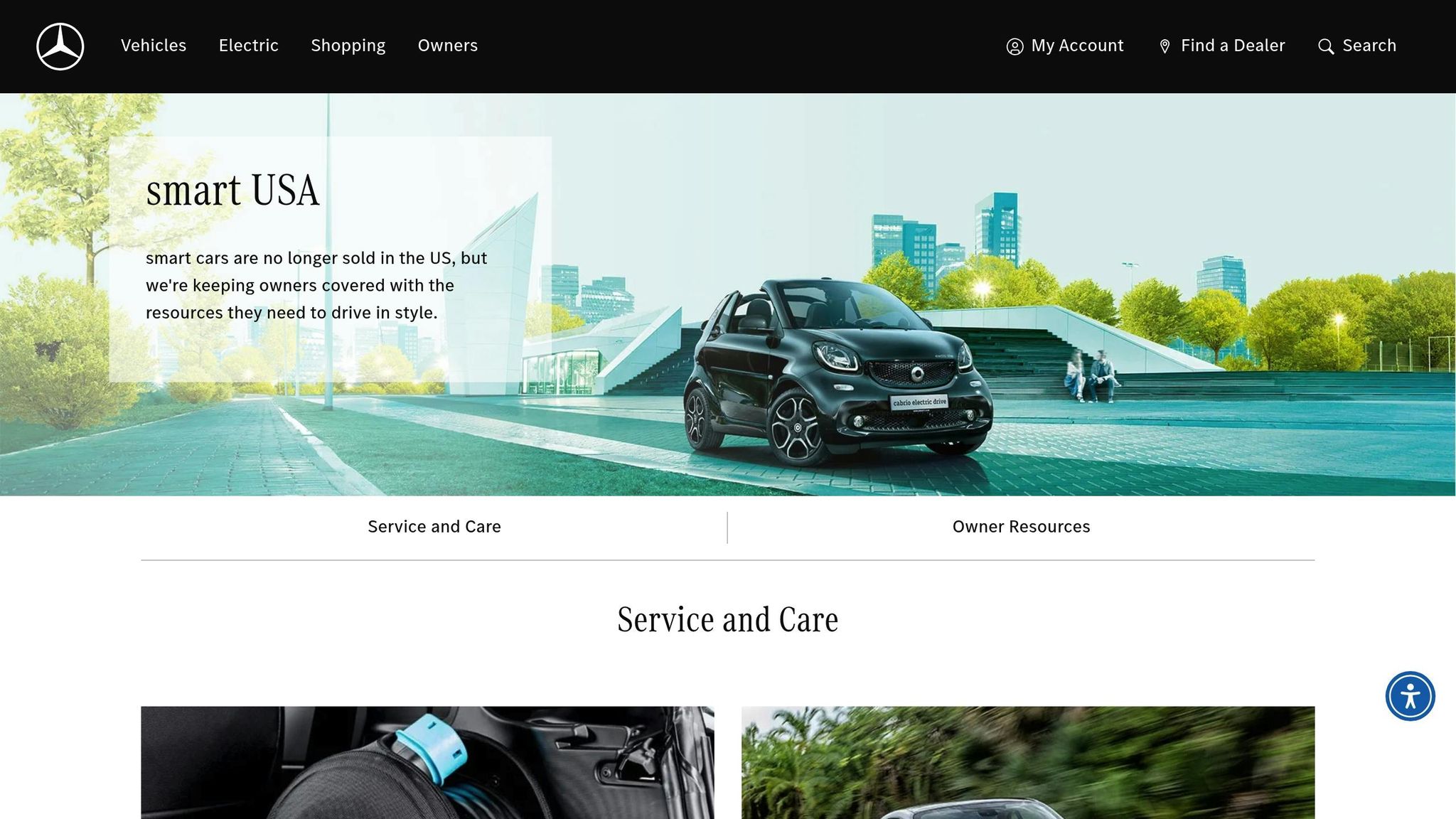
The Smart Fortwo Electric Drive is a compact two-seater that’s perfect for city life. Its small size makes it a breeze to navigate through heavy traffic and squeeze into tight parking spots. While it’s an affordable option, its limited range and dependence on imported parts could make maintenance a bit tricky.
Nissan Leaf
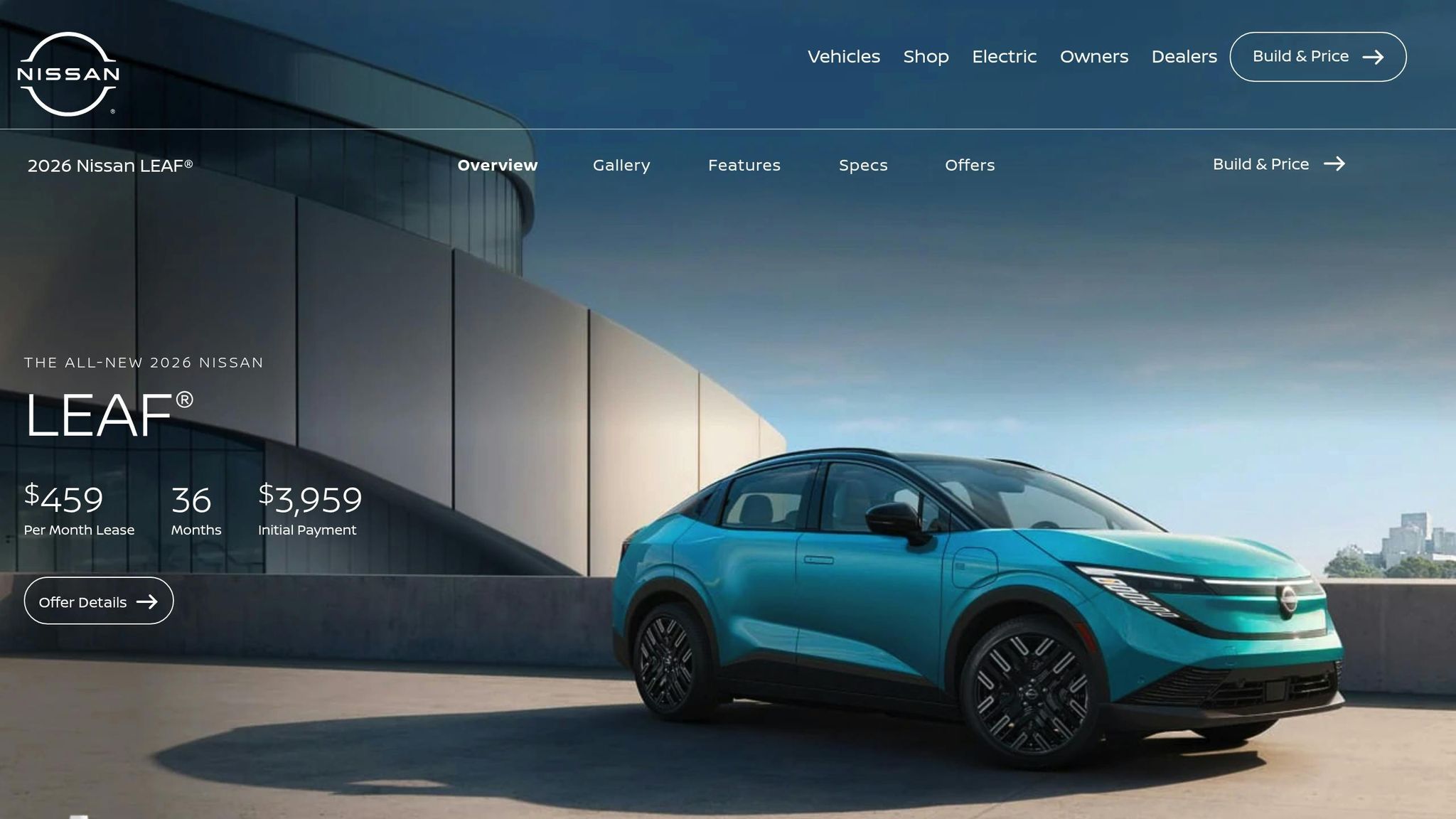
The Nissan Leaf strikes a good balance between cost and functionality, which explains its popularity among EV enthusiasts. Older models are well-suited for city driving, while newer versions come with improved range and performance. Thanks to its global reputation, finding parts and service expertise is easier compared to some other models. However, Nigeria’s fast-charging network is still a work in progress, which might be a consideration for potential buyers.
Volkswagen e-Golf

The Volkswagen e-Golf offers a premium feel without breaking the bank. It combines the classic design of a traditional car with the efficiency of an EV, making it a versatile choice for both city and highway driving. It also supports fast-charging, a handy feature for longer trips. On the downside, the limited local service network might lead to higher maintenance costs.
Aduja M2 (Local Brand)
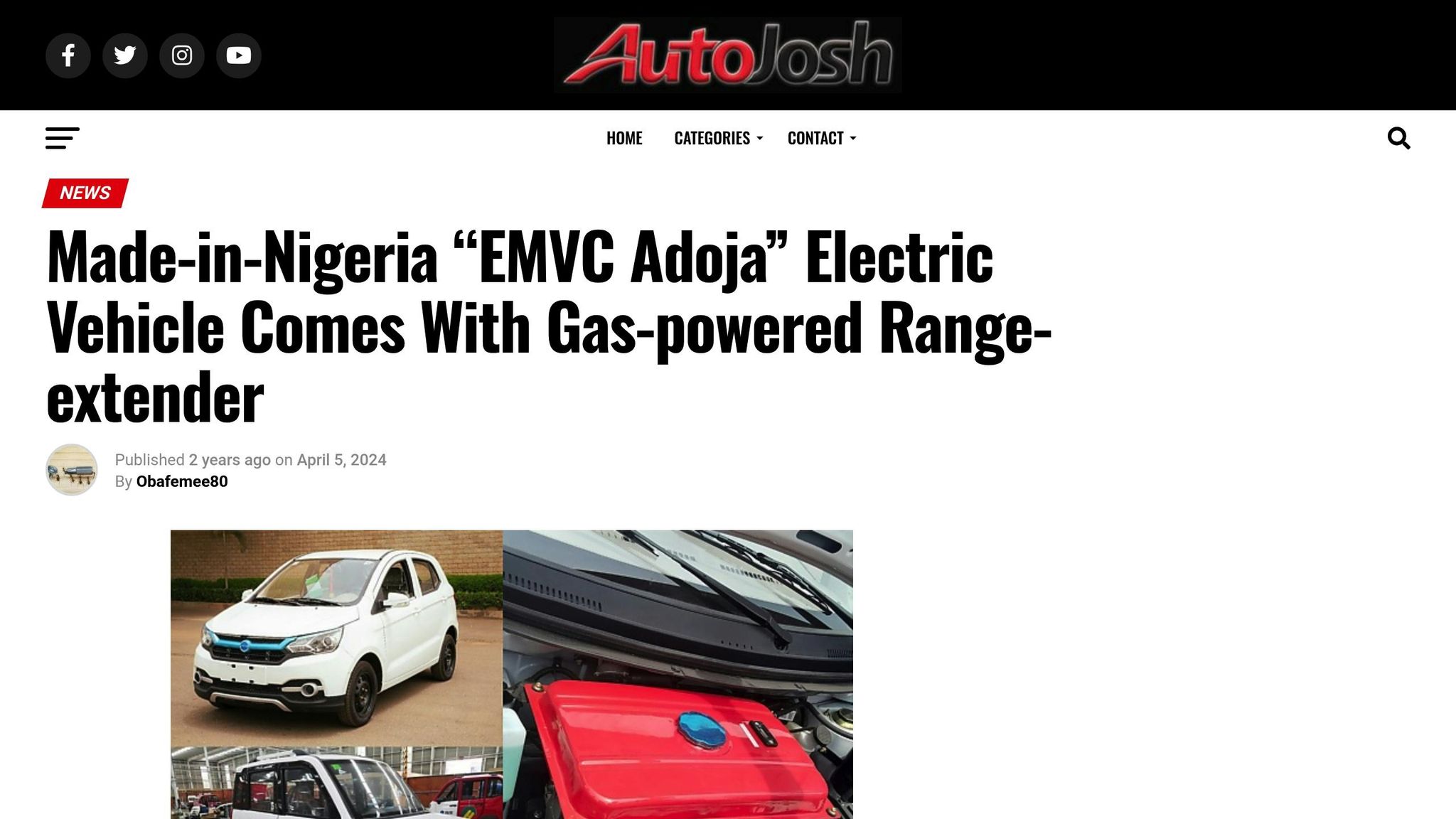
The Aduja M2 is a milestone for Nigeria’s EV market, representing the country’s efforts to locally assemble electric vehicles. Designed for urban commuting, it comes at a competitive price and benefits from local assembly, which could make parts and service more accessible. While it doesn’t yet match the polish of international brands, the Aduja M2 is a promising step toward domestic electric mobility. Early models have shown some reliability issues, and the limited charging infrastructure remains a challenge.
sbb-itb-99e19e3
Price and Feature Comparison of Cheap Electric Cars in Nigeria
When deciding on an affordable electric vehicle in Nigeria, it’s essential to weigh factors like price, performance, and features to find the best fit for your needs and budget. The table below highlights key details such as upfront costs, driving range, and other important specifications.
Comparison Table of Key Features
| Model | Price Range (NGN) | Price Range (USD)* | Range | Battery Size | Charging Time | Seating | Best Use Case |
|---|---|---|---|---|---|---|---|
| Smart Fortwo Electric Drive | ₦8,500,000 – ₦12,000,000 | ~$11,300 – ~$16,000 | 93 miles (150 km) | 17.6 kWh | 3.5 hours (AC) | 2 | City commuting, tight parking spaces |
| Nissan Leaf (2015–2017) | ₦12,000,000 – ₦18,000,000 | ~$16,000 – ~$24,000 | 107 miles (172 km) | 30 kWh | 8 hours (AC), 40 min (DC fast) | 5 | Family use, daily commuting |
| Volkswagen e-Golf | ₦15,000,000 – ₦22,000,000 | ~$20,000 – ~$29,300 | 125 miles (201 km) | 35.8 kWh | 5.3 hours (AC), 45 min (DC fast) | 5 | Highway driving, longer trips |
| Aduja M2 | ₦6,500,000 – ₦9,000,000 | ~$8,700 – ~$12,000 | 75 miles (120 km) | 20 kWh | 6 hours (AC) | 4 | Urban commuting, local assembly support |
*Note: USD conversions are approximate, based on an exchange rate of about ₦750 per USD.
Let’s take a closer look at each model to better understand their strengths and ideal use cases.
The Smart Fortwo Electric Drive is a compact choice perfect for navigating Nigeria’s bustling cities. Its small size makes parking much easier in crowded areas, but with only two seats, it’s not ideal for families or larger groups.
The Nissan Leaf, especially models from 2015 to 2017, offers a great balance of space and driving range, making it a practical choice for families. Its established global presence also ensures better access to service networks, which can be a big plus for long-term reliability.
For those who need a bit more range and faster charging, the Volkswagen e-Golf stands out. It’s designed for longer trips and highway driving, making it a solid pick for commuters who frequently travel between cities.
On the other hand, the Aduja M2 is Nigeria’s own locally assembled EV. It’s the most budget-friendly option in this lineup and supports local manufacturing efforts. While its range is shorter compared to others, its affordability and the potential for easier access to local parts and service make it an appealing choice for urban drivers.
One critical factor to keep in mind is Nigeria’s charging infrastructure, which is still developing. Models with DC fast-charging capabilities, like the Nissan Leaf and Volkswagen e-Golf, can help minimize charging downtime, but access to fast chargers may still be limited.
When considering total ownership costs, the Aduja M2’s low purchase price is attractive, but global brands like Nissan and Volkswagen may offer more predictable maintenance through their established service networks.
Ultimately, the best choice depends on your specific needs. Urban professionals with shorter commutes might gravitate towards compact options like the Smart Fortwo or Aduja M2. Meanwhile, families or those with longer travel requirements may find the Nissan Leaf or Volkswagen e-Golf better suited to their lifestyles.
This comparison provides a clear starting point for evaluating which model aligns with your priorities and budget.
How to Buy and Own an Electric Car in Nigeria
Navigating Nigeria’s growing electric vehicle (EV) market requires careful planning. From financing to importing and charging, making informed decisions ensures you get the most out of your investment.
Checking Vehicle Condition and Financing Options
When buying an electric car, the battery is the heart of the vehicle. Always check its health by getting a diagnostic report to compare the current capacity with its original specifications. While some battery degradation is normal, excessive wear could mean costly replacements down the line. If you’re looking at a used EV, review its service history and confirm that spare parts are available locally. Take the car for a test drive under typical Nigerian conditions – like stop-and-go traffic or highway speeds – to get a sense of its real-world range. It’s also a smart move to consult an EV specialist to ensure you’re making a solid purchase.
Financing an EV in Nigeria can be tricky, as options are still limited. Most buyers rely on personal loans from banks or installment plans offered by dealerships. It’s worth noting that, as of 2025, there are no government subsidies or tax incentives for EVs in Nigeria. Contact local banks to explore flexible payment terms, and keep an eye out for any policy changes that could affect ownership costs.
Platforms like EV24.africa can help ease the financial burden. They offer flexible payment plans and transparent pricing, giving you a clearer picture of the costs involved and helping you budget effectively.
Once you’ve confirmed the vehicle’s condition and secured financing, the next step is managing the import and registration process.
Import Duties and Registration Process
Import duties significantly impact the total cost of owning an electric car in Nigeria. Customs duties, VAT, and other levies can quickly add up, so it’s important to factor these into your budget.
The import process involves obtaining a valuation from the Nigeria Customs Service, paying the required duties, and securing a clearance certificate. After the vehicle arrives, you’ll need to register it with the Federal Road Safety Corps (FRSC). This requires proof of ownership, customs clearance documents, and payment of registration fees to get your license plates.
Some states may have additional requirements for electric vehicles, such as proof of compliance with environmental standards. It’s a good idea to check with local authorities for any specific regulations.
EV24.africa simplifies this often-complicated process by handling customs clearance and registration for buyers, saving time and effort.
With the import and registration steps completed, your focus shifts to charging and servicing your EV.
Finding Charging Stations and Service Centers
Since public charging stations are still scarce in Nigeria, most EV owners rely on home charging. Installing a home charging unit can cost anywhere from ₦500,000 to ₦2,000,000 (approximately $325 to $1,300 USD). While this may seem like a significant upfront expense, it provides the convenience and reliability you need for daily use.
Charging your EV at home is also much cheaper than fueling a petrol car. It costs about ₦9.60 to ₦16 per kilometer, making it up to five times more affordable. For example, fully charging a 64 kWh battery – enough for about 400 kilometers (250 miles) – costs between ₦3,840 and ₦6,400.
When it comes to servicing, availability varies depending on the brand and location. Established manufacturers like Nissan and Volkswagen often have more extensive service networks, while newer or locally assembled models may have fewer options. Before buying, confirm that trained technicians are accessible in your area.
EV24.africa is a helpful tool for finding charging stations and service centers in major Nigerian cities. The platform connects EV owners with reliable support networks, making long-term ownership more manageable. Joining EV owner communities through the platform can also be a great way to exchange tips and advice for overcoming local challenges.
To get the most out of your EV, learn about regenerative braking, efficient charging habits, and range management. These practices will help you maximize your vehicle’s performance and value over time.
Conclusion: Switching to an Affordable Electric Car
Making the switch to an affordable electric car in Nigeria is a realistic option, even with challenges like higher upfront costs due to import duties and limited local production. Over time, the savings on charging and maintenance make electric vehicles (EVs) an appealing choice for budget-conscious drivers. Here’s a breakdown of the key benefits and considerations for making EV ownership more accessible.
Charging an EV costs between ₦9.60 and ₦16 per kilometer, which adds up to substantial savings as fuel prices continue to climb. Additionally, EVs have fewer moving parts and don’t require oil changes, reducing servicing expenses and helping offset the initial investment. For those looking for affordable options, models like the Nissan Leaf priced at ₦10.8 million ($6,600) and the BYD e1 at ₦12–14 million ($7,300–$8,500) offer a cost-effective entry into electric mobility.
Although public charging stations are still scarce, most EV owners rely on home charging. While this requires an upfront investment, it provides the convenience and reliability necessary for daily use.
Platforms like EV24.africa are simplifying the transition to EVs by offering services such as transparent pricing, handling customs clearance and registration, and connecting buyers with charging stations and service centers. For example, in November 2025, EV24.africa featured affordable options like the GEELY PANDA MINI BASE for $5,880, which has a 120-kilometer range, and the DONGFENG NanoBox for $8,300, offering a 321-kilometer range. These models provide budget-friendly solutions for Nigerians looking to embrace electric mobility.
"At EV24.africa, we simplify the process of importing and buying electric vehicles in Africa. Our expertise ensures a seamless, transparent, and stress‐free experience, so you can focus on driving the future of mobility." – EV24.africa
With services like these, owning an EV in Nigeria is becoming more straightforward. However, successful EV ownership requires thoughtful planning. Buyers should select models that match their daily driving needs, ensure they have reliable access to charging, and consider the total cost of ownership rather than focusing solely on the purchase price. Encouragingly, investments in charging infrastructure from both government and private sectors – particularly in urban areas like Lagos and Abuja – are helping to address practical challenges.
For Nigerians ready to make the leap to electric vehicles, the combination of lower running costs, reduced maintenance, and expanding infrastructure makes EVs a smart and forward-thinking choice. While the transition may take some effort, the financial and environmental rewards are well worth it.
FAQs
What challenges come with owning an electric car in Nigeria, and how can they be solved?
Owning an electric car in Nigeria comes with its fair share of hurdles. Some of the biggest concerns are the high initial purchase price, scarce charging infrastructure, and the steep cost of battery replacement. These challenges can make the switch to electric vehicles seem overwhelming for many potential buyers.
One way to ease these difficulties is through government support, such as tax breaks or subsidies, which could make electric vehicles more budget-friendly. Expanding the network of public charging stations and promoting home charging setups would also go a long way in making EV ownership more practical. On top of that, educating drivers on battery care and maintenance could help extend battery life, ultimately cutting down on long-term expenses.
How does the cost of owning an electric car in Nigeria compare to a gas-powered car?
The cost of owning an electric car in Nigeria can vary quite a bit when compared to gas-powered vehicles. Factors like the initial purchase price, charging costs, and maintenance all play a role. While electric cars often come with a higher upfront price tag, they tend to save money in the long run thanks to lower fueling and maintenance expenses.
One key advantage of electric vehicles (EVs) is that they require less maintenance. With fewer moving parts than traditional internal combustion engines, there’s simply less that can go wrong. Charging an EV is also typically more affordable than filling up a gas tank. However, it’s important to consider other expenses, such as the cost of installing a home charging station and the availability of public charging points, which can impact your overall costs.
At the end of the day, how the costs stack up will depend on your driving habits, access to charging infrastructure, and the specific models you’re comparing.
How can I set up a reliable home charging station for my electric car in Nigeria?
To set up a dependable home charging solution for your electric vehicle (EV) in Nigeria, the first step is to confirm that your home’s electrical system can handle the extra demand. It’s a good idea to consult a licensed electrician to evaluate your wiring and, if necessary, install a dedicated circuit specifically for your EV charger.
Next, choose a high-quality home charger that’s compatible with your EV model. Look for chargers with proper safety certifications and useful features like adjustable charging speeds. When installing, pick a spot that’s both convenient and shielded from the elements to ensure durability and ease of use.
Given the challenges with electricity supply in Nigeria, it’s worth exploring backup options to keep your EV charged without interruption. Solutions like solar panels or a generator can provide additional reliability. With this setup, you’ll enjoy steady and efficient charging right at home.


